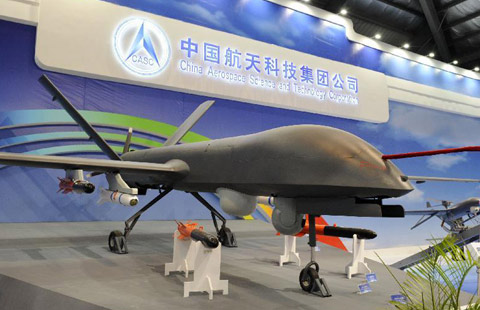China faces difficulty hiring male nurses
By Zheng Xin (China Daily) Updated: 2012-05-03 10:47
Besides the pain, what bothered Yang Zhihong the most during a circumcision were the female nurses lingering in the operation room.
"It couldn't be more embarrassing," said the 23-year-old senior student from Beijing Foreign Studies University, who underwent a foreskin operation at Peking University Third Hospital in March, for reasons of hygiene.
"I just felt uneasy with women around me and my pants off, even if they are there to help with my operation," he said.
That was not the first time Yang thought there should be more male nurses in the hospital.
"For a physical examination on private parts, a urological examination for example, it would be better to be helped by nurses of the same gender," he added.
While their numbers have increased in recent years, male nurses still only account for less than 1 percent of all nurses in China, according to the Ministry of Health. Just 21,000 of China's 2.18 million nurses are men.
In the United States and many European countries, the percentage of male nurses is around 10 percent, Beijing Peking University First Hospital head nurse Deng Jun said during a forum focusing on male nurses on April 25.
"We need to come up with more male nurses to meet the deficiency for male nurses in China," he said.
Despite the long and deep cultural association between women and the word "nurse", which is derived from a Latin world meaning to nourish or suckle a child, men have played an indispensable role in the healthcare profession, Deng said.
"The lack of male nurses is mainly due to the misconception that a nursing job is a degrading job requiring no technical skills with a comparatively poor salary," Deng said. "People hold the belief that men are too clumsy to clean a patient's body or take care of the sick."
However, male nurses possess some unique attributes, Deng said.
"While women are regarded as gentle and careful, men are physically stronger than most women, and more rational in dealing with emergencies," Deng said.
"Besides, during some examinations and healthcare involving private parts, it is respectful to have the guys take care of the male patients as well."
In some high-pressure and fast-paced working environments, such as operating rooms or emergency rooms, male nurses definitely have an edge as well, Deng said.
"It's difficult for a female nurse to turn over a paralyzed patient by herself in an intensive care unit," he said. "During natural disasters, earthquakes for example, male nurses also play a vital role in rescuing victims and providing healthcare in a dangerous environment."
Men make up only 1,900 of the 69,000 registered nurses in the capital, and they mainly work in the emergency room, ICU, psychiatry department and divisions that are "labor-demanding", according to the Beijing Municipal Health Bureau.
Men are usually expected to be the pillar of a family and society, but working in a predominately female profession laced with misconceptions and stereotypes often makes them feel cornered, Deng said.
"I have seen so many male nurses quit or resign in the past few years," he said. "With a basic salary of around 1,500 yuan ($240), most male nurses simply find themselves cornered."
Under pressure from society, the medical industry has experienced a brain drain of male nurses, said Zhao Yue, director of the School of Nursing of the Tianjin Medical University.
"Many students even reject their identity as a male nurse, out of the long-existing discrimination," Zhao said. "But nursing truly needs the male attribute to their rational thinking, physical strength and calmness in face of emergency and disasters."
Nothing will change "until the public changes its attitude and nurses' pay is raised", he said.
zhengxin@chinadaily.com.cn
- China to promote Silk Road travel in 2015
- Major private steel company files for bankruptcy protection
- Global investors push Shanghai bourse up
- Sydney to launch RMB clearing service
- Nipsea Group expand into Asia
- AIIB demonstrates China's bid for infrastructure investment
- China's decision to observe IMF data standards benefits economy
- Shanghai-Hong Kong Stock Connect kicks off
















